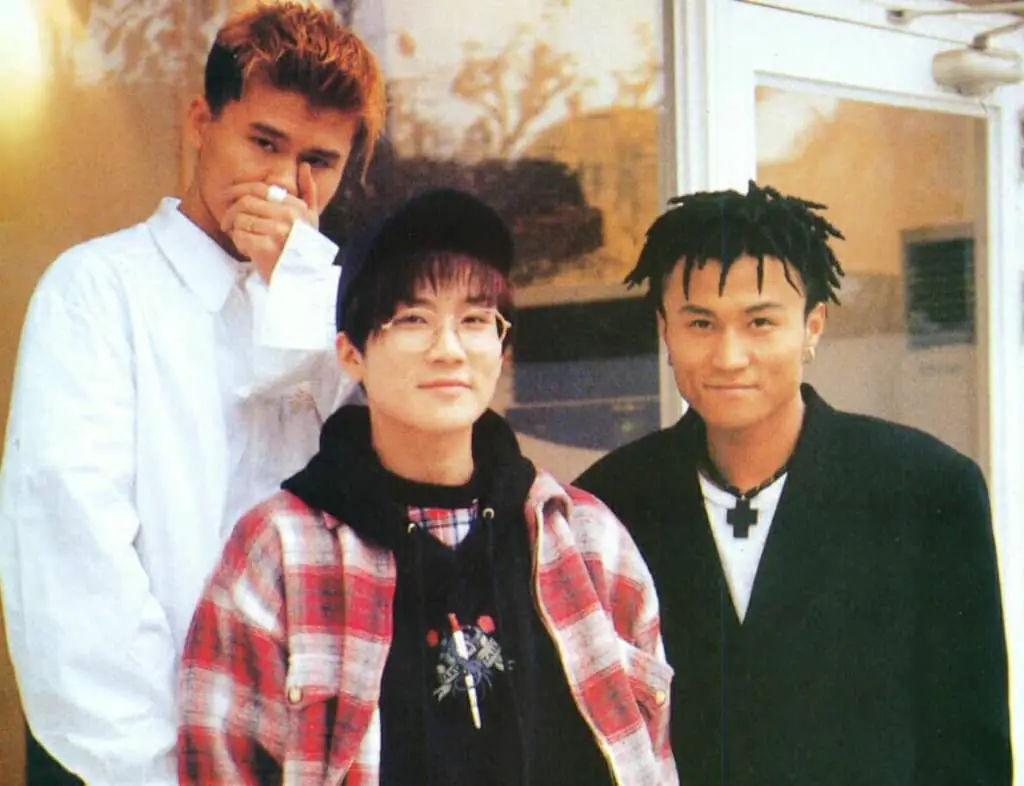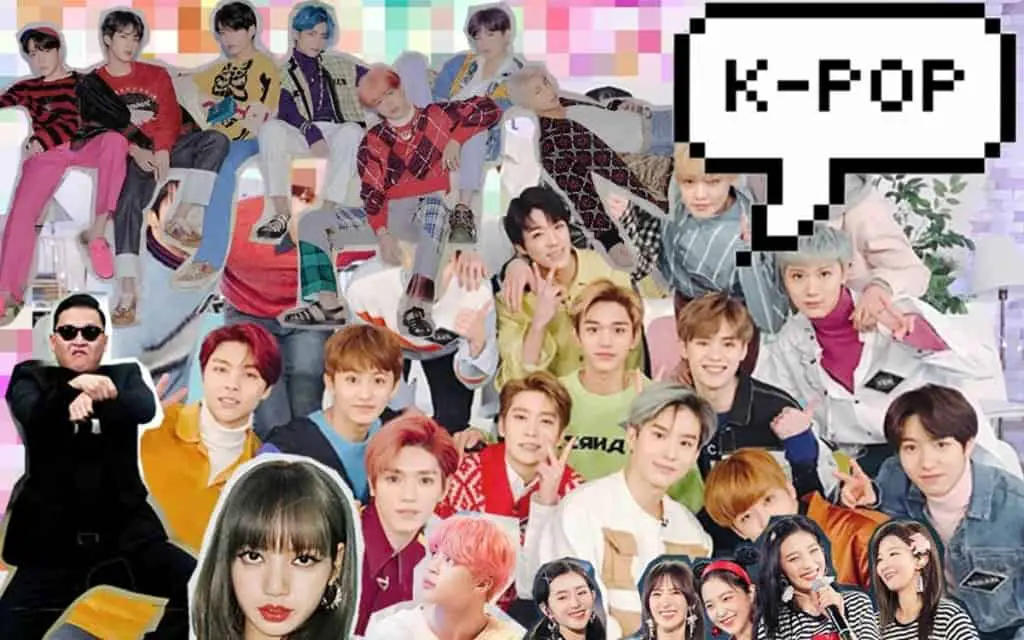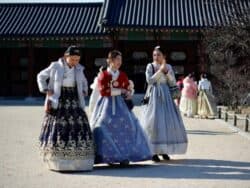Korean pop music or commonly called Korean pop or K-pop has brought the entire world to take a second look at this small divided peninsula. K-pop fame has had politicians celebrities to babies all beat to the same rhythm. But where did K-pop begin? For someone who doesn’t know a lot about Korean pop music, its history wouldn’t be something that they would think about. For someone like me, K-pop has been around forever. Nevertheless, the history of K-pop is much more definite.
Read also:
- Best K-Pop Albums & Goods Online Stores
- K-POP (Korean Pop Music) Tour Programs in Seoul
- Top 12 Korean Fashion Online Stores
- The 19 Best Korean Cosmetic Brands for Skincare and Makeup
K-pop 101: History of K-pop
If you are interested in purchasing and possessing K-dramas or K-pop CDs, check this post, Best K-Pop Albums & Goods Online Stores.
History of K-pop: What is K-pop And What Is Its Origin?
K-pop or Kpop, short for Korean pop music, is probably the country’s biggest and most lucrative export. It’s characterized by the singing talents and the brilliantly choreographed dancing that these artists display during performances. Thanks to both traits, K-pop grew into such a global phenomenon. You would be hard-pressed to find someone who has not at least heard of the genre.
However, most people don’t know the exact origins of K-pop. They’ll be surprised to learn that the concept that would lead to K-pop came about back in 1885 when an American missionary, Henry Appenzeller, started to teach his students American and British folk songs with Korean lyrics. Prior to this moment, the Korean population hadn’t had much exposure to the western world, as the Korean Peninsula mostly kept to itself.
Jump several decades after the liberation of the Korean people from Japanese colonization and the horrors of the Korean War, more of Korea was opening up to the ideologies of the western world. Specifically, the introduction of television broadcasting, as well as democracy, helped Koreans to connect to the rest of the world. Suddenly, western music was becoming widespread across the country, and musicians began to experiment with mixing it into the Korean music scene.

Where to buy K-pop albums & goods online;
History of K-pop: The Kim Sisters
Even the most hardcore fans of K-pop would probably not know of The Kim Sisters. They were a singing group in the late 1950s and they were made up of two sisters (daughters of the country’s most famous singer at the time Lee Nan-young), Sook-ja and Aija, and their cousin, Minja. They started their music career by singing country songs to American soldiers stationed in Korea. The soldiers, in turn, would donate their old rock and roll records in order to help them expand their musical repertoire. Later, they would leave Korea to chase after their musical dream. Eventually, they landed several interviews on the talk show Ed Sullivan’s Show. This helped to introduce and prompt Korean music to the rest of the world.
The 90s: Seo Taiji And Boys

You can’t learn about the history of K-pop without learning about the first-ever K-pop group, Seo Taiji And Boys, Seo Taiji was a member of a Korean heavy metal band called Sinawe, but upon leaving the group, he recruited dancers Yang Hyun-suk and Lee Juno, and with them, made a music group, Seo Taiji and Boys.
It was on April 11, 1992, that they performed their single “Nan Arayo (I Know)” on a talent show: Interestingly, they did not win the talent show. Surprisingly, they got the lowest score out of all of the contestants. Consequently, however, as soon as the song debuted, it quickly rose to the top of the Korean singles chart, where it stayed at #1 for 17 consecutive weeks.
Seo Taiji And Boy’s song was the first time that American-style music was introduced to the Korean population and mixed with Korean culture to produce something unique. No one has heard of search a thing before. In addition, the kinds of music that Seo Taiji And Boys made touched on topics that were never before sung about: fashion, social pressure, and the reality of the Korean education system, among others.
Seo Taiji And Boys disbanded in 1996 but by the time they did, they had engendered a whole new music genre and changed the musical and performance landscape forever. They helped to pave the way for future music groups.
History of K-pop And The Era Of The Music Studios
By the time Seo Tai-ji And Boys disbanded in 1996, three music studios appeared on the scene. SM Entertainment (or SM Town), JYP Entertainment, and YG Entertainment–which was founded by one of the members of Seo Taiji And Boys, Yang Hyun-suk–took over the music landscape and began to work on creating what would become K-pop idol bands.
SM Entertainment founder, Lee Soo-Man, assembled five singers and dancers and trained them to be the first pop idol group H.O.T. In his thinking, these five performers were what people wanted to see in a modern pop group. Indeed, H.O.T shares many traits with a lot of the K-pop idol groups today, merging their singing, rapping, and dancing talents into their music style and their brand.
When, in the year 1998, H.O.T. was invited to perform at a benefit concert with American pop star Michael Jackson, the music industry saw an opportunity to become much more global. This led to the music studios recruiting multilingual artists like BoA who would help them reach a wider, international audience.
In short, groups like H.O.T and Seo Taiji And Boys started the world sensation. SM Entertainment, YG Entertainment, and JYP Entertainment churned out musical group after musical group that all quickly rose to local and international fame.

K-pop Culture and Vocabulary

K-pop dominates much of culture today, and it’s nowhere clearer than the culture spurned by K-pop among its fans. K-cons or Korean cons is an annual convention that celebrates Hallyu, or the Korean cultural wave. Fans from all over the world would come to these conventions to show their love and support for the ever-blooming global phenomenon.
Additionally, these fans have also devised a few words in order to express their appreciation for K-pop idols. Here are just a few of them from Koreaboo.com:
| Word | Definition |
|---|---|
| All-Kill | when a song hits #1 on all Korean music apps |
| Anti-fan | someone who hates a particular celebrity |
| Bias | your favorite K-pop idol |
| Ultimate Bias | your ultimate favorite K-pop idol |
In addition, there are also words that already exist in the Korean language, but K-pop fans use them quite often. Here are several examples from Koreaboo.com:
| Word | Romanization | Definition |
|---|---|---|
| 대박 | dae-bak | Great, awesome! |
| 막내 | mak-nae | the youngest member of a group |
| 선배/후배 | seon-bae/hoo-bae | someone who is older/younger than you in the industry |
| 상남자 | sang-nam-ja | an ideal manly man/ dream guy |
| 안 돼 | ahn-dweh | literally ‘can’t do’ used to express something impossible or disbelief at something |
| 어떻게 | eo-ddot-ggae | how? |
| 어머/어머나 | eo-meo/eo-meo-na | Korean equivalent of ‘oh my’ or ‘oh my gosh’ |
| 애교 | ae-gyo | an act of cuteness, usually used by girls to get someone (usually their boyfriends) to do something for them |
| 헐 | heol | an expression of surprise, disbelief, amazement (this is a very diverse word and it can mean different things depending on how you use it) |
| 화이팅 | hwa-i-ting | an expression used to cheer something on |
| 짱 | jjang | Awesome! Amazing! |
History of K-pop: Conclusion
As you can see, K-pop is not just a music genre. In contrast, K-pop has transformed into a whole culture and lifestyle for the artists and their adoring fans all over the world. Because of this, it’s essential for you to know about the K-pop music genre before stepping foot in Korea.
If you want to check out some places where you can purchase K-pop items, check out our articles here and here.
For a more in-depth analysis of the history and culture of Korean pop music, blogger and entrepreneur Hannah Waitt has a blog series detailing each major stage of K-pop’s evolution from the late 1800s to now.
IVK’s Top Picks – Day Tours, Tickets, and Travel Activities
Seasonal Picks!😍























nice
kelan po ito napublish?
Hi Kirsten,
It’s published on August 18, 2020.
Have a good day.
C’était mon anniversaire ce jour-là!